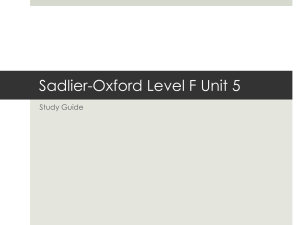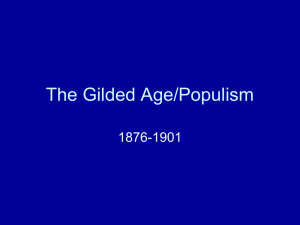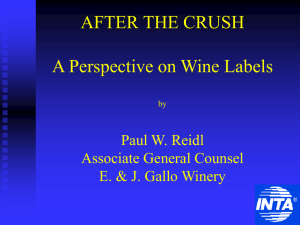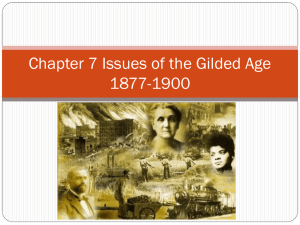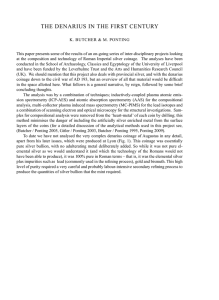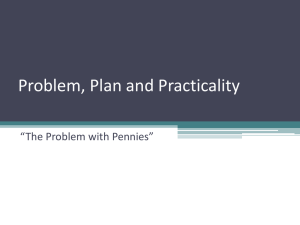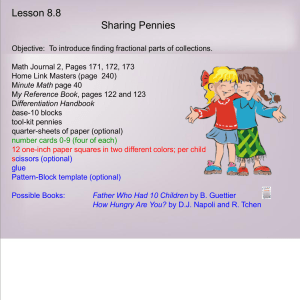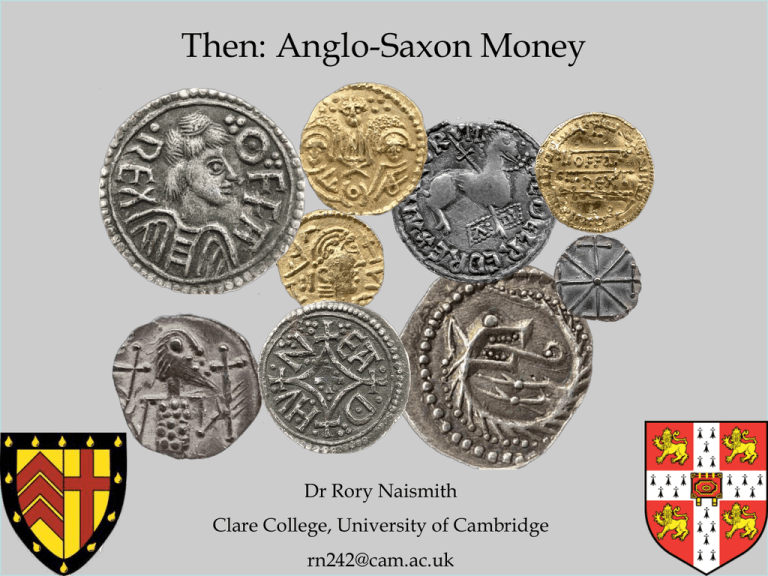
Then: Anglo-Saxon Money
Dr Rory Naismith
Clare College, University of Cambridge
rn242@cam.ac.uk
Anglo-Saxon Digital Money?
- Units of account vs units of currency, and the development of
a ‘monetary mentality’
- Limitations of the currency system
- Currency as commodity: precious metal and money
Early medieval monetary units:
- Scilling/shilling: gold coins in the
period c. 600–75. Thereafter only a unit of
account of 4, 5 or 12 pennies in different
times and places.
- Pund/pound: weight or unit of account.
240 pennies. Not coined.
- Sceat: 20 to the shilling. Weight of gold
or silver. Probably not actually coined.
- Pæning/penny: silver coin/unit of
account from c. 675.
- Mancus: Arabic term borrowed into
medieval Latin, initially to refer to gold
coins or weights. Equated to 30 pennies.
Cnut cyning gret his
arcebiscopas and his
leodbiscopas and Þurcyl eorl
and ealle his eorlas and ealne
his þeodscype, twelfhynde and
twyhynde, gehadode and
læwede, on Englalande
freondlice.
King Cnut sends friendly
greetings to his archbishops and
his bishops, to Earl Thorkell and
all his earls, and all his people in
England, those of a twelvehundred wergild and those of a
two-hundred wergild, clergy and
laymen.
- Opening of a letter from Cnut to his
people, 1019–20
King Cnut on the beach, ordering the waves to
retreat.
All that Glitters is Gold (or Silver): Building a Stairway to Heaven?
Colophon to the Lindisfarne
Gospels: London, British
Library, Cotton MS Nero D.iv,
fol. 259r
aldred p[res]b[yte]r … ofgloesade on englisc
… mid ðæm ðrym dælvm . Mathevs dæl
gode [and] s[an]c[t]e cvðberhti . Marc[us]
dæl ðæm bisc[ope] . [and] lvcas dæl ðæm
hiorode [and] æht ora seolfres mid to inlade
[and] s[an]c[t]i ioh[annes] dæl f[or] hine
seolfre ([id est] f[or]e his saule) [and] feover
ora seolfres mid gode [and] s[an]c[t]i
cvðberti
Aldred the priest … glossed [this book]
in English … for the three [following]
causes: he glossed Matthew for God and
for St Cuthbert; he glossed Mark for the
bishop; and he glossed Luke for the
community and for eight oras of silver
for his entry [into the community];
while the gospel of John he glossed for
himself (that is, for his soul) and for four
oras of silver to God and St Cuthbert
Insuper atque placabili pecunia ab eo suscepta pro amore cælestis patriæ et pro
stabilitate regni mei . hanc donationis terram concedens donabo ad æcclesiam
sæpe nominatam beatæ Mariæ matris domini
And so, having also received satisfactory payment from him, for love of
the heavenly realm and for the security of my kingdom, I permit and
grant this donation of land to the church.
- Charter of Uhtred, sub-king of the Hwicce (764×774)
Four Phases of Anglo-Saxon Coinage
• c.450-600: Little or no coinage
• c.600-675: Gold shillings
• c.675-750: Silver pennies/sceattas
(small thick flan)
• c.750/60-1279 Silver pennies
(broad thin flan)
Early Medieval Prices
30 pence = compensation for an ox, 920s/30s
20 pence = compensation for a cow, 920s/30s
10 pence = compensation for a pig, 920s/30s
5 pennies = compensation for a sheep, 920s/30s
4 denarii = maximum price for a modius of wheat, 794 (=c. 40kg)
3 denarii = maximum price for a modius of rye 794
2 denarii = maximum price for a modius of oats, 794
4 denarii = wine for a group of women in Dorestad, c. 870
Big Money
A crowd of peasants had come to pray at the holy tomb, and having finished their devotions, wanted to go home. One man
from the crowd went into a tavern to buy himself some wine. At that time, unless I am mistaken, a sester (c. 550 ml) of
wine cost one denarius. The buyer just wanted half a sester, but only had a whole denarius, not a half. He and the barkeep
agreed that the seller would accept the denarius and give in return a half denarius and the half sester of wine. But the seller
was not paying much attention, and gave back a full sester of wine and half a denarius. The buyer noticed this, and did not
want to tell the seller; instead, he set off for lunch and drank his wine with his friends. But the one who had lost out came to
his senses and realised he had given more wine than he should, and also the change. He waited a little, and then the same
man came back with his half denarius, asking to be given the same amount of wine again. Then the man who had been
cheated in the last transaction said, ‘You must be having a laugh, mate: what you bring is mine, not yours, since you took
both my wine and my money’. But the latter came out with an oath that he had not stolen the other man’s property;
without any compulsion, he cemented it to the fullest degree with this vow: ‘Let it be displeasing to the most blessed
Philibert if what you say about me is true – that I stole this wine that I drank’. Immediately – almost as soon as he could
say this – he ignominiously vomited up in front of everyone what he had unjustly consumed. Emptied of drink, he gave
back the half denarius and left in disgrace.
Ermentarius, Miracula sancti Philiberti, c. 72 (written c. 838)
Small Money?
Cut halfpenny, Æthelred II
(978–1016)
Silver penny, Harold II
(January–October 1066)
Copper-alloy ‘styca’, Redwulf of
Northumbria (c. 844)
Edgar (959–75):
silver halfpenny,
London mint
Charter of Godwine to Leofwine the Red; Canterbury, 1013×1020 (Sawyer 1220)
[Godwine gives a swine pasture to Leofwine the Red] æt þon sceatte ðe Leofsunu him
geldan scolde . þ[æt] is feowertig penega [and] twa pund [and] eahta ambra cornes (‘for the
payment which Leofsunu was required to pay him; that is, 40 pence, two pounds
and eight ambers of corn’)
Prayerbook
printed in
Iceland 1748
Price: 48 fish
Apud Hergan quinque pauperes . apud Otteford ; quinque . apud Clive . ii . apud
Gravenea . ii . apud Oesuualun . vii . in civitate Dorobernia . sex . unicuique detur cotidie
ad manducandum quod convenienter sit satis . et per annum cuique pauperi ad vestitum
. xxvi . denarii . Cotidie quoque præcepit missam celebrari pro anima sua . 7 pro
animabus supra memoratorum . in anniversario suo precepit dari mille . cc . pauperibus
ad manducandum . cuique panem . unum . 7 caseum aut . lardum . et denarium unum
To five paupers at Harrow, five at Otford, two at Cliffe, two at Graveney, seven at Easole and six
in the city of Canterbury let enough to eat be given each day as is convenient, and over the year
let each pauper be given 26 pence for clothing. [Werhard] also commanded that a mass be
celebrated for his soul every day, and for the souls of those mentioned above he commanded that
on his anniversary 1200 paupers should each be given for food a loaf of bread, some cheese or
butter and one penny.
The will of Werhard (Canterbury, c. 830): P. H. Sawyer, Anglo-Saxon Charters (London, 1968), no. 1414
Bigger Money
Gold dinar, imitating Arabic
issue of AH 147/AD 773–4,
Offa of Mercia (757–96)
Crucible melt of at least 12 silver dirhams (one dated
782/3) and two pieces of hacksilver. Found at Kaupang,
Norway; probably made c. 850–900
Gregory of Tours, Historiae vii.24
Ille vero cum se ab his cerneret
coartatum, effracto unum de sacris
ministeriis calicem aureum et in
numisma redactum, se populumque
redemit
When [the bishop] saw that he
was surrounded, he broke up
into coin a chalice from among
his holy vessels and had it
melted down into coin, and
thus ransomed himself and the
people
Merovingian gold chalice, c. 500 (Gourdon
hoard, Bibliothètheque nationale)
Post hoc uero honorabilis abbas Hedda atque pater
monasterii Bredun aliam .xv. manentes habentem terram,
cui nomen est Cedenan ac, huiusmodi ratione optinuit a
rege Ædilredo, ut ei quingentos solidos, id est .xii.
lectorum stramenta utpote culcita plumacia ornata,
capitalia simul cum sindonibus et lenis quemadmodum in
Brittannia habere mos est, necnon seruum cum ancilla,
fibulam auream cum .iiii. ex auro massiunciulis arte
aurificis compositis, et duos caballos cum cannis duabus,
pro prefata terra pretium dedit
After this Hedda, honourable abbot and father of the
monastery of Bredon, succeded in obtaining 15 hides
of land from King Æthelred at Cedenan ac; he did so
by offering for the aforementioned land the price of
500 shillings, that is, twelve beds (namely feather
mattresses and elaborate pillows together with
muslin and linen sheets, as is customary in Britain),
also a slave with a slave girl, a gold brooch with four
gold mountings made by a goldsmith, and two horses
with two wagons.
- Charter of Æthelred, king of the Mercians (675×691)
Anglo-Saxon money …
- Gold shillings (before c. 675) and silver pennies (after c. 675) were the
only coins in regular production.
- All coins in regular use were relatively valuable (c. £20+ each in
modern terms).
- Most coins theoretically contained close to their face value in gold or
silver.
- Coinage probably changed hands in <50% of all transactions.
- Low-value exchanges used cut fractions, commodities or barter.
- High-value exchanges used a higher proportion of precious metal
objects and gold than silver pennies.
The End

